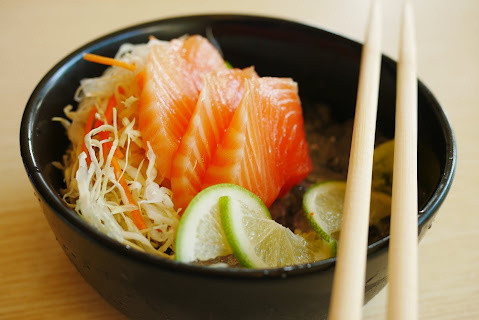From the land of natural multivitamins, where wellness and plenty of nature collide, greetings! Imagine an abundance of essential nutrients that support your health directly from fruits, vegetables, and other organic sources. Natural multivitamins are like a vibrant ensemble of superheroes, each with a unique power to boost your immunity against disease, give you more energy, and promote overall wellbeing.
These organic wonders—made by Mother Nature herself—offer a kind of vitamins and minerals that are more readily available and easier to absorb than synthetic supplements. To establish a comprehensive approach to nutrition, each element—from the vivid oranges of citrus fruits to the tender greens of vegetables—contributes its own benefits. Come along with us as we explore the benefits of consuming natural multivitamins and go on an endeavor to improve ourselves.
Discover the keys to living a busy, fulfilling life. Prepare to accept the goodness of nature as your daily energy source!
#Define Plant-Powered Nutrition
1.Whole, Plant-Based Focus:
- The mainstays of plant-powered diet are whole, unprocessed plant foods such as grains, legumes, fruits, and vegetables. These foods enhance general health since they are high in fiber, vitamins, and minerals.
2.Rich in Nutrients:
- A wealth of nutrients that are essential to human health are found in plants. A plant-centric diet guarantees a varied and nutrient-rich menu because of its antioxidants, which fend off dangerous free radicals, and its fiber, which aids in digestion.
3.Heart Health:
- Research indicates a lower risk of heart disease may be associated with plant-based diets. Because they are low in saturated fats by nature, plants also provide soluble fiber, which lowers cholesterol.
4.Weight control:
- A focus on plant-based diets can help with weight control. Because of the high fiber content, there is less of an incentive to overindulge in calories because you will feel fuller after eating.
5.Environmental Impact:
- Plant-powered diet is consistent with eco-friendly living, even if it goes beyond personal health. Making plant-based food is a sustainable decision since it often has a smaller environmental impact than producing animal products.
#Importance of Natural Multivitamin Supplements:
1.Nutrient Gaps:
- Even with a plant-based diet, it's challenging to cover all your nutritional bases. Some essential vitamins and minerals might be elusive.
2.B12 Blues:
- Vitamin B12, vital for energy and brain health, is primarily found in animal products. Plant-based eaters may need a B12 supplement to avoid deficiency.
3.Iron Matters:
- While plants provide iron, it's non-heme iron, which the body absorbs less efficiently than the heme iron from meat. A supplement can be a handy sidekick.
4.Omega-3 Quest:
- Fish is a common source of omega-3 fatty acids, but plant-based options like flaxseeds and algae oil or supplements can save the day.
5.Vitamin D Dilemma:
- Sunlight is a natural source, but for those in less sunny regions or spending more time indoors, a vitamin D supplement ensures strong bones.
6.Convenience Counts:
- In our busy lives, ensuring a diverse and nutrient-rich plant-based diet daily can be challenging. A multivitamin supplement acts as a safety net.
#Benefits of Plant-Based Multivitamins:
1.Nature's Bounty:
- Natural multivitamin supplements derived from plants offer a rich source of essential nutrients straight from Mother Nature.
2.Broad Spectrum Goodness:
- Unlike synthetic alternatives, plant-based supplements provide a diverse range of nutrients, including vitamins, minerals, and antioxidants, ensuring comprehensive health support.
3.Bioavailability Boost:
- The body absorbs nutrients more efficiently from plant-based sources, enhancing bioavailability. This means you get more bang for your buck as your body can better utilize the goodness packed in these supplements.
4.Gentle on the Stomach:
- Plant-derived multivitamins are often gentler on the digestive system compared to synthetic versions, reducing the risk of discomfort or upset stomach.
5.Natural Synergy:
- Plants have a special ability to combine nutrients in ways that promote optimal health benefits by working together in a synergistic fashion. Synthetic supplements frequently lack this natural synergy.
6.No Nasty Additives:
- For people wishing to boost their health, plant-based supplements are a cleaner and more natural option because they usually include fewer artificial additives and preservatives.
7.Long-Term Wellness:
- By filling in dietary deficiencies and fostering general health and vigor, plant-based multivitamins' comprehensive approach supports long-term wellness.
#Key Nutrients in Plant-Based Multivitamins:
1.Vitamin B12:
Role:
- Essential for nerve function and the formation of red blood cells.
Source:
- Often lacking in plant-based diets, so supplements are crucial.
2.Iron:
Role:
- Vital for transporting oxygen in the blood and preventing fatigue.
Source:
- Plant-based iron is not as easily absorbed as animal sources, so a supplement helps maintain optimal levels.
3.Calcium:
Role:
- Crucial for strong bones and teeth.
Source:
- Plant-based options like fortified plant milk and leafy greens are good, but supplements ensure an adequate intake.
4.Vitamin D:
Role:
- Aids in calcium absorption, supporting bone health.
Source:
- Limited in plant-based foods, so a supplement is often recommended, especially in areas with less sunlight.
5.Omega-3 Fatty Acids:
Role:
- Supports heart and brain health.
Source:
- While seeds and algae can provide some, a supplement ensures sufficient intake.
6.Iodine:
Role:
- Essential for thyroid function and metabolism.
Source:
- Plant-based diets may lack iodine, so a supplement or iodine-rich foods are important.
7.Zinc:
Role:
- Supports immune function and wound healing.
Source:
- Plant-based sources are available, but a supplement can help meet daily requirements.
#Case Studies or Success Stories:
Introducing Sarah, a working mother who experienced poor energy. Her energy level significantly increased once she started using plant-based multivitamins, and she was able to keep up with her children with ease. These pills helped John, a fitness enthusiast, recuperate better from his workouts and lessened his aching muscles.When Emily, a longtime doubter, switched to plant-based supplements, she noticed changes in her skin and hair. Verified results from real people with verified stories demonstrate the potential benefits of consuming plant-based multivitamins.
Their personal stories lend a sincere perspective, which makes the decision to adopt a plant-based diet an appealing and respectable way to live a healthy living.
# Address Common Concerns or Misconceptions:
Although plant-based diets and natural multivitamin supplements are becoming more and more popular, some worries and myths persist. Now let's talk about them. Problem: "Plants lack essential nutrients." Fact: A number of studies demonstrate that plant-based diets, which provide vitamins, minerals, and antioxidants, can satisfy dietary demands.The worry is that "supplements are unnecessary." Fact: Although entire foods are essential, supplements guarantee sufficient nutrient consumption, particularly for particular populations. Their function in avoiding deficits is supported by research.
Concern: "Natural doesn't mean effective." Fact: Natural supplements can be potent; scientific studies validate their benefits.
Concern: "Natural doesn't mean effective." Fact: Natural supplements can be potent; scientific studies validate their benefits.
Addressing concerns through evidence-based information is key to embracing plant-powered nutrition and natural supplements for a well-rounded, vibrant life.
#Tips for Choosing Quality Supplements:
Plant-based multivitamins are becoming more and more popular in the health field, but how do you choose the finest one? These simple pointers can assist you in making an informed decision.1.Examine the Ingredients:
- Seek out multivitamins made entirely of natural, plant-based components. Steer clear of artificial coloring, preservatives, and additives. Vegetables and fruits are examples of entire foods that are high in vitamins.
2.Examine certificates:
- Reputable products frequently bear certificates. Look for certifications such as Vegan Certified, Non-GMO Project Verified, or USDA Organic. These show that the supplement satisfies a set of purity and quality requirements.
3.Examine Reputable Brands:
- Stick with well-known businesses that have a history of producing supplements of the highest caliber. Products from brands with large testing and development budgets are more likely to be reliable.
4.Consider the Nutrient Form:
- Some vitamin forms are more readily absorbed than others. Choose vitamin D3 over D2, for example, and methylcobalamin over cyanocobalamin for vitamin B12.
5.Review the reviews:
- Real-world experience can be beneficial. Look for reviews that other users have left on the product. Their remarks may contain enlightening details.
#Recipes and Meal Ideas:
1.Iron-Pumping Spinach Salad:
- Begin your day with a spinach salad that's loaded with nutrients. In addition to being high in iron, spinach is also a great source of vitamins and antioxidants. For an added nutritional boost, add some cherry tomatoes, cucumbers, and a sprinkling of pumpkin seeds.
2.Protein-Packed Quinoa Bowl:
- Quinoa is an excellent complement to your plant-based diet because it is a complete protein source. Combine diverse vegetables, such as bell peppers, broccoli, and chickpeas, to make a vibrant quinoa bowl. Pour over some tahini dressing for some taste and good fats.
3.Calcium-Rich Smoothie:
- Blend up a delicious smoothie using fortified plant-based milk, kale, and a banana for a calcium boost. Add chia seeds for an omega-3 punch and a creamy texture.
4.Vitamin C-Packed Citrus Salad:
- Oranges, grapefruits, and kiwi are not only refreshing but also high in vitamin C. Create a vibrant citrus salad for a tasty way to meet your daily vitamin C requirements.
5.Omega-3 Fatty Acid Chia Pudding:
- Chia seeds are a powerhouse of omega-3 fatty acids. Make a simple chia pudding by mixing chia seeds with almond milk and topping it with fresh berries. It's a delightful and nutritious dessert or breakfast option.

.jpg)







.jpg)





Post a Comment
0Comments